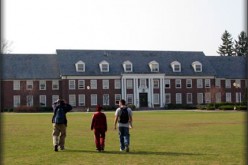In some states, including Minnesota, at least one in four students that started college in 2006 completed their degree elsewhere. In Alaska, 28 percent of college students didn’t just switch schools, but switched states in pursuit of their degrees.
State Abstract
These findings were part of state-by-state roundup of student attainment rates published this week by the National Student Clearinghouse organization. The NSC serves as the national point of reference for confirming degree completion through its verification and reporting services, and culled its data from 3,300 participating colleges and universities.
The roundup was part of a report, “Completing College: A National View,” that found that the college completion rate tops 75 percent inclusive of nontraditional avenues. Often missed in such data gathering are students that are adult learners, transfer to another school, attend part-time or hold some other status that can make them appear “invisible” to researchers. The NSC claims a more accurate and clearer picture of higher learning and degree attainment.
Transfer Behavior
While Minnesota boasts the highest college transfer rate in the nation, the national average is 12 percent. Some 3.2 percent of four-year college graduates received a certificate or an associate degree first, but in some states that percentage was at least three times the national rate.
Two-year institutions continue to play a critical role in higher education, with 15 percent of four-year college graduates starting out at a community college, a technical or a junior college before transferring. In Virginia, about one in five graduates began their postsecondary education at a two-year institution.
Attending college affords many people the opportunity to leave their home state to get educated elsewhere. For some students, the leaving does not take place until after they started college, transferring not only to another school, but to an institution in another state.
Alaska’s 28 percent transfer out rate was followed by North Dakota at 20 percent. Those rates, however, are much higher than the national average, pegged at just 6 percent by the NSC.
Completion Rates
One important measuring tool of college student success is a six-year completion rate. That generous education span acknowledges that many students do not fit the four-year mold and are likely to switch majors, transfer colleges and lose credits, or perhaps attend school part-time. Not surprisingly, traditional learners were more likely to graduate college in six years than adult learners. Many adult learners must balance work and family responsibilities with their educational pursuits, and can be expected to take longer to complete their studies.
The NSC data can be useful for states as they seek to reach their college completion goals. The study follows college enrollment behaviors beginning in the autumn 2006 through the spring 2012, focusing on first-time degree-seeking students.
-------------------------------------------------------------------------------------------------------------
end of post idea
-------------------------------------------------------------------------------------------------------------
view home improvement ideas at our Photo Remodeling center
Helpful article? Leave us a quick comment below.
And please share this article within your social networks.









